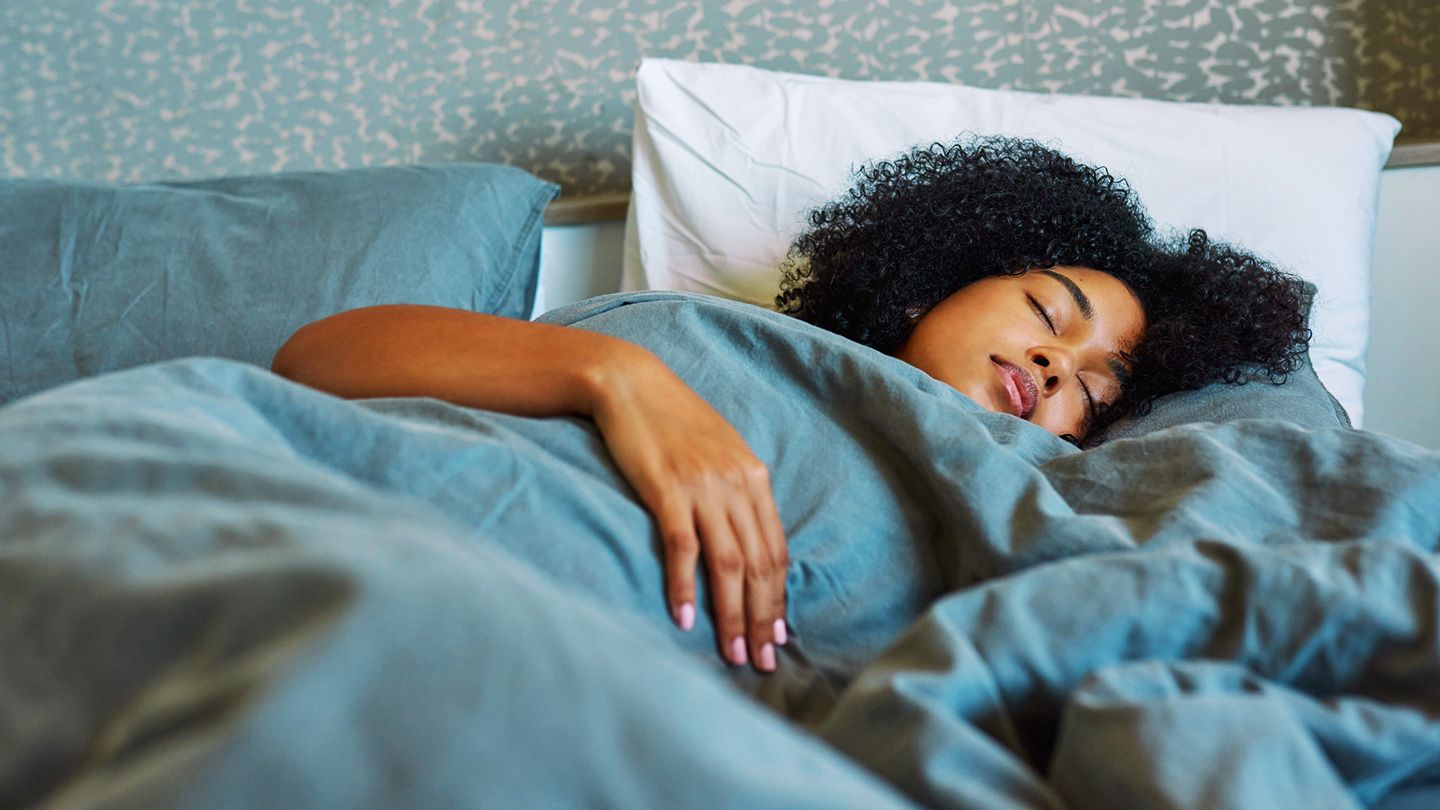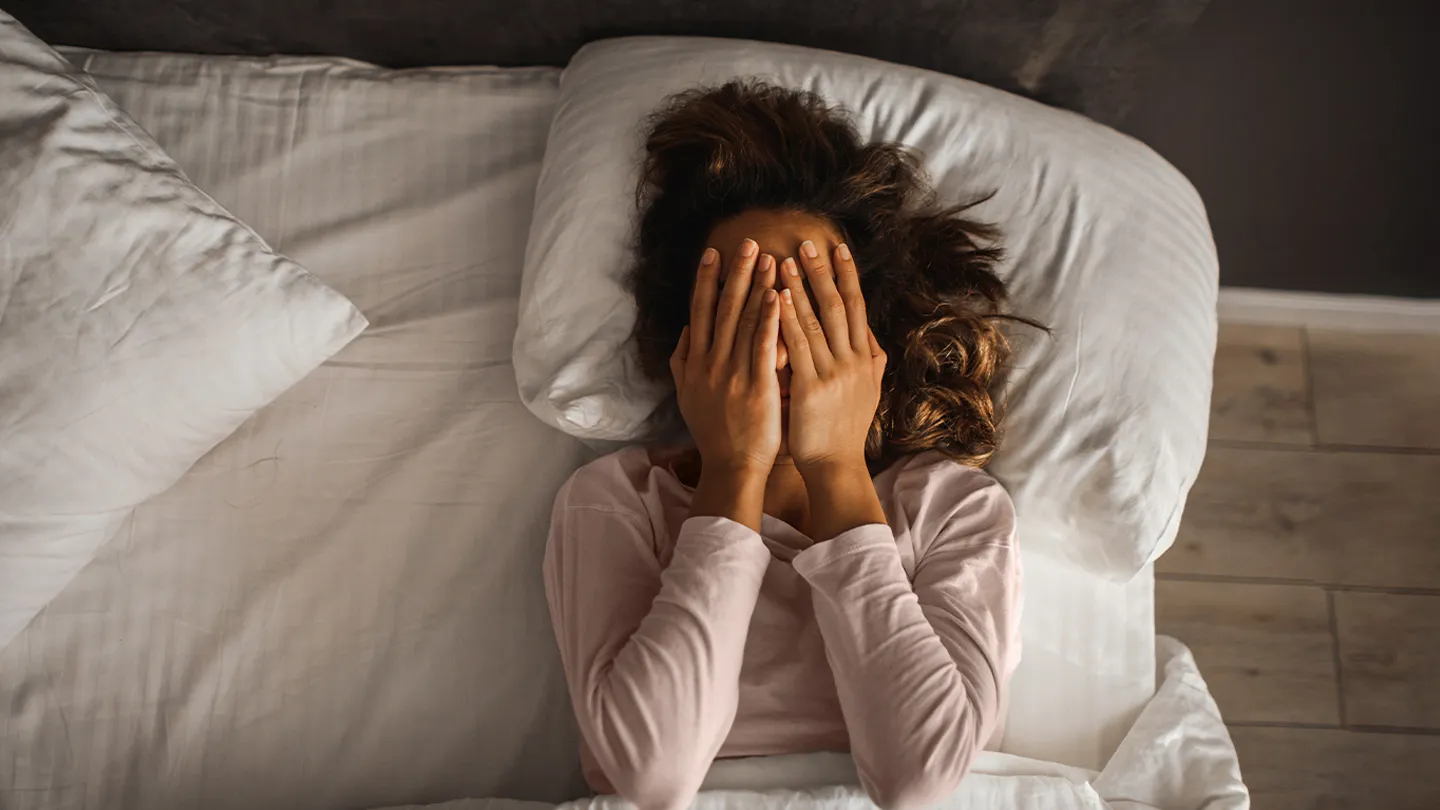Understanding Insomnia and Its Causes
Insomnia is one of the most common sleep disorders, affecting up to 30% of adults at some point. It is characterized by difficulties falling asleep, staying asleep, or waking up too early and not being able to get back to sleep. Insomnia can be acute (short-term) or chronic (long-term). It can have a significant impact on a person's energy, mood, productivity, and overall quality of life.
There are a number of factors that can contribute to insomnia, including:
- Stress - This can be caused by work, relationships, financial pressures, illness, or major life changes.
- Traveling and changing time zones
- Poor sleep habits - Such as inconsistent bedtimes/waking times, using electronic devices before bed, or uncomfortable sleep environment.
- Medical conditions - Such as chronic pain, cancer, asthma, heartburn, Alzheimer's, Parkinson's.
- Medications - Both prescription and over-the-counter drugs can sometimes cause insomnia.
- Mental health disorders - Such as depression, anxiety, bipolar disorder.
- Caffeine, alcohol, or nicotine - Consuming these too close to bedtime can disrupt sleep.
Identifying and treating any underlying causes is often the first step to overcoming insomnia. Making certain lifestyle changes can also help in mild cases.
Lifestyle Changes and Home Remedies for Insomnia
Many people with insomnia seek drug-free, natural ways to get better sleep before turning to medication. Here are some of the most commonly used natural aids for insomnia:
1. Stick to a Regular Sleep Schedule
Having a regular bedtime and wake time helps regulate your body's internal circadian clock for more consistent, restful sleep. Try to go to bed and wake up at the same time every day, including weekends. This helps strengthen the association between your bedroom and sleep.
2. Improve Your Sleep Environment
Make sure your bedroom is cool, dark and quiet. Consider blackout curtains, a fan or white noise machine to block out light and noise. Also make sure your mattress and pillows are comfortable. Avoid electronic devices and TVs in the bedroom as well.
3. Avoid Naps
Daytime naps may provide a short-term boost in energy but can make it harder to fall asleep at night. Try to limit naps to 30 minutes before 3 pm. If you must nap, wake up at least one hour before bedtime.
4. Have a Relaxing Bedtime Routine
Unwind by reading a book, taking a warm bath or trying gentle yoga stretches. Meditation or deep breathing exercises can also help relax the body and mind before bed. Create a consistent routine and stick to it.
5. Exercise Regularly But Not Before Bed
Regular physical activity can help reduce stress and tire you out for better sleep. However, intense exercise too close to bedtime can have the opposite effect. Finish workouts at least 3 hours before bedtime.
6. Avoid Caffeine, Alcohol and Big Meals Before Bed
Caffeine can stay in your system for 6-8 hours, disrupting sleep. Avoid coffee, tea, soda and chocolate late in the day. Alcohol may help induce sleep initially but causes restless sleep later. Heavy meals too close to bed can also interfere with sleep. Finish eating 2-3 hours before bedtime.
7. Limit Screen Time Before Bed
The blue light emitted from TVs, phones, tablets and computers suppresses melatonin production and stimulates the brain. Avoid screens for 1-2 hours before bed or use blue light blocking glasses.
8. Try Relaxation Techniques
Relaxing activities before bed like light yoga, deep breathing, meditation or music can help reduce anxiety and racing thoughts. Guided meditations and mindfulness apps can help calm the mind before bed.
9. Keep a Notebook or Journal By Your Bed
If your racing thoughts keep you up, write them down to get them out of your head. Put down tasks to complete the next day as well to minimize worrying.
10. Get Out of Bed if You Can't Sleep
If you haven't fallen asleep after 20 minutes, get up and do a quiet activity like reading until you feel sleepy. Lying in bed awake can create an unhealthy link between your bed and insomnia.
When to See a Doctor for Insomnia
Persistent insomnia or sudden onset of sleep difficulties could signify an underlying medical issue. It's a good idea to discuss your sleep problems with a doctor if:
- Insomnia symptoms last longer than 2-3 weeks
- Insomnia occurs most nights
- You have difficulty functioning during the day
- Insomnia symptoms return after stopping sleep medication
- You have other medical conditions that could be linked
- You engage in potentially unsafe behavior like driving while sleep deprived
A doctor can check for any underlying illness and may recommend sleep tests if there is no obvious cause. Blood tests may also check for vitamin deficiencies linked to insomnia.
Common Medical Causes of Insomnia
Certain medical conditions are closely associated with insomnia, including:
- Gastroesophageal reflux disease (GERD) - Acid reflux can disrupt sleep.
- Chronic pain - Conditions like arthritis, neuropathy, migraines.
- Respiratory disorders - Asthma, chronic obstructive pulmonary disease (COPD).
- Neurodegenerative disorders - Alzheimer's, Parkinson's disease.
- Mental health issues - Depression, anxiety, post-traumatic stress disorder (PTSD).
- Hyperthyroidism - Overactive thyroid gland.
- Menopause - Hormonal changes can impair sleep.
- Cancer - May cause pain, depression, anxiety.
Treating the underlying disorder may relieve insomnia, but additional sleep aids may be required.
Over-the-Counter and Prescription Sleep Aids
If lifestyle changes alone don't help insomnia, sleep medications can be a temporary solution. OTC and prescription options include:
Over-the-Counter Sleep Aids
- Antihistamines - Diphenhydramine (Benadryl), doxylamine (Unisom).
- Melatonin - Hormone that regulates sleep cycle.
Prescription Sleep Medications
- Benzodiazepine hypnotics - Estazolam, triazolam, temazepam.
- Non-benzodiazepines - Zolpidem (Ambien), zaleplon (Sonata).
- Melatonin receptor agonists - Ramelteon (Rozerem).
- Orexin receptor antagonists - Suvorexant (Belsomra).
- Tricyclic antidepressants - Amitriptyline, doxepin.
Sleep medications can help in the short term but may cause side effects like daytime drowsiness. They can also become less effective over time. Use prescription sleep aids carefully and only as directed by your doctor.
Cognitive Behavioral Therapy (CBT)
CBT is considered the first-line, non-drug treatment for chronic insomnia. A trained therapist helps identify and change thoughts or behaviors that contribute to sleep problems. This may include:
- Changing unrealistic sleep expectations
- Identifying barriers to sleep
- Relaxation and breathing techniques
- Building bedtime rituals
- Managing racing thoughts
CBT requires commitment but can provide long-lasting benefits for insomnia without medication side effects.
Other Complementary and Alternative Therapies
Some other therapies that may improve sleep include:
- Acupuncture - Fine needles stimulate specific points to balance energy flow.
- Yoga - Poses, breathing and meditation to reduce stress.
- Tai chi - Gentle, flowing movements to relax the body.
- Massage - Kneading muscles eases tension and anxiety.
- Aromatherapy - Lavender, chamomile, and bergamot oils promote relaxation.
- Valerian - Herbal supplement used for insomnia and anxiety.
Some people find these therapies helpful for insomnia, especially when used with other proven treatments. But more research is needed on their effectiveness.
Developing Healthy Sleep Habits
Making certain lifestyle changes and sticking to them can help many people overcome insomnia in the long run without medications. Important habits for healthy sleep include:
- Winding down before bedtime
- Exercising regularly but not right before bed
- Limiting caffeine, alcohol and heavy meals in the evening
- Making the bedroom a sleep haven
- Going to bed and waking up on a consistent schedule
- Leaving time to unwind and turn off devices before bed
- Keeping stress in check with relaxation techniques
If you continue having persistent or worsening sleep problems despite lifestyle changes and natural remedies, see your doctor to get to the root cause.
Treating medical conditions, short-term medication, cognitive behavioral therapy, and complementary approaches can help overcome chronic insomnia. With patience and commitment, you can find the right solution to get the restful sleep you need.
FAQs
What are some common causes of insomnia?
Common causes include stress, poor sleep habits, medical conditions, medications, mental health disorders, and consuming too much caffeine, alcohol or nicotine.
What kind of medical conditions can lead to insomnia?
Medical conditions associated with insomnia include gastroesophageal reflux disease (GERD), chronic pain, respiratory disorders, neurodegenerative disorders, hyperthyroidism, menopause and cancer.
What over-the-counter sleep aids can help with insomnia?
Some OTC sleep aids include antihistamines like Benadryl and Unisom, as well as melatonin supplements.
What prescription medications are used to treat insomnia?
Prescription medications used for insomnia include benzodiazepine hypnotics, non-benzodiazepines like Ambien, melatonin receptor agonists such as Rozerem, and tricyclic antidepressants.
What type of therapy can provide long-term relief from insomnia?
Cognitive behavioral therapy (CBT) is considered the first-line non-drug treatment for chronic insomnia, helping change thoughts and behaviors that contribute to sleep problems.
Disclaimer: This article is for informational purposes only and does not constitute medical advice. Always consult with a healthcare professional before starting any new treatment regimen.
Related Coverage
Insomnia is deeply frustrating. Photos of tossing and turning, staring at clocks, dark circles capture the universal sleepless struggle. Find humor and resilience....
Learn the right methods for safely handwashing and loading dishwashers to prevent bacteria. Plus proper use of water temperature, dishcloths, draining, and maintenance....
Hypnosis is a state of focused awareness that allows communicating with the subconscious mind. Learn the science behind hypnosis and how to leverage its power responsibly....
Insomnia can often be treated with natural remedies like better sleep habits, relaxation techniques, and avoiding caffeine. Prescriptions or therapy may also help....
Frequent crying before bed can signal distress and underlying issues. Learn common causes like stress, depression, or sleep disorders and when to seek medical help....
Milo's popular decaf sweet tea is seeing major shortages recently due to ingredient scarcity and supply chain problems getting decaffeinated tea and Splenda....
Significant weight loss can lead to loose facial skin and jowls along the jawline. But facial exercises, skin treatments and procedures can help tighten skin....
Learn how to identify different types of ticks, diseases caused by ticks, prevent tick bites and pathogens, properly remove attached ticks, and seek treatment if symptoms arise....
The Stop & Drop Diet involves completely fasting then restricting calories. Learn whether this extreme diet works long-term or leads to yo-yo dieting....
Discover the often overlooked spiritual causes of insomnia and learn how to cultivate inner peace through practices like mindfulness, gratitude, and creating a nurturing sleep environment....









